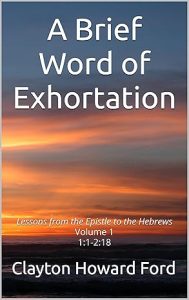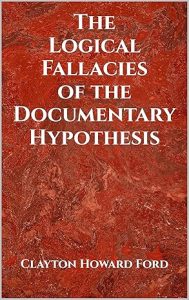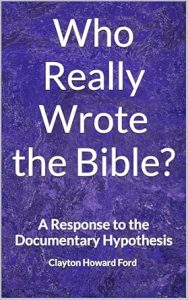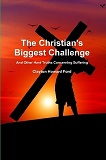“But the just shall live by his faith” (Hab. 2:4)
In The Emperor’s New Groove, the emperor, who has been turned into a talking llama, and his peasant pal, Pacha, are being chased by his evil advisor, Yzma, and her henchman, Kronk, both of whom end up being locked in a closet in Pacha’s house by Pacha’s family. Yzma says to them, “Tell us where the talking llama is and we’ll burn your house to the ground.” Kronk says, “Don’t you mean ‘or’?” Yzma sighs in frustration, then says, “Tell us where the talking llama is OR we’ll burn your house to the ground.” Pacha’s daughter says, “That is a pretty crucial conjunction.”
It is a pretty crucial conjunction. I have entitled today’s lesson “Election and Free Will.” In most churches, the title would have been “Election OR Free Will,” because most Christians believe that the Scriptures teach one or the other and that anyone who believes the other is, at best, sadly mistaken or, at worst, a heretic.
The doctrines of election and free will are an attempt to answer two important questions: Did God choose to save us before the foundation of the world? Or did we choose to save ourselves?
Those who would answer yes to the first question believe in the doctrine of predestination (election). This doctrine has existed since the first century, but it was most ably defended by John Calvin (1509-1564), a French reformer who headed the church in Geneva, Switzerland. Because of this, the doctrine is also known as Calvinism. This is the belief held by the Southern Baptists and the Presbyterians.
Calvinism emphasizes the sovereignty of God. Before the foundation of the world, God in his sovereignty chose who would be saved and who would not be saved. That decision was not based on anything any person would do but on the purposes and will of God. People choose to get saved because God has already chosen them to be saved. Each person’s choice to be saved or not to be saved, therefore, is determined by whether God has already chosen to save that person or not. In other words, you chose to be saved because God chose you to be saved from before the foundation of the world.
There are, of course, Scriptures to support this doctrine:
The Lord has made all for Himself,
Yes, even the wicked for the day of doom (Prov. 16:4)
He came to His own, and His own did not receive Him. But as many as received Him, to them He gave the right to become children of God, to those who believe in His name: who were born, not of blood, nor of the will of the flesh, nor of the will of man, but of God (John 1:11-13).
“You did not choose Me, but I chose you…” (John 15:16).
For whom He foreknew, He also predestined to be conformed to the image of His Son, that He might be the firstborn among many brethren (Rom. 8:29).
See also Rom. 9:1-21 and Eph. 1:3-11.
This is why the Scriptures sometimes refer to the believers as the elect (1 Pet. 1:1-2; Col. 3:12).
Those who would answer yes to the second question believe in the doctrine of free will. This doctrine has also existed since the first century, but it was first systematized by Jacob Arminius (1560-1609), a Dutch professor and former pastor. Because of this, the doctrine is also known as Arminianism. This is the belief held by the Methodists and most Pentecostal churches, including the Assemblies of God.
Arminianism emphasizes the responsibility of man. Each person is free to choose to be saved or not to be saved, and therefore, each person is responsible for the choice he or she makes. If a person ends up condemned to spend eternity in hell, it is because that person chose to be condemned. God certainly does not predestine anyone to condemnation. The Scriptures that speak about predestination mean that God, before the foundation of the world, foresaw who would freely choose to be saved. Those are the ones he predestined for salvation. God’s choice to save a person, therefore, is determined by that person’s choice to be saved or not to be saved. In other words, God chose you to be saved from before the foundation of the world because you chose to be saved.
There are, of course, Scriptures to support this doctrine:
“I call heaven and earth as witnesses today against you, that I have set before you life and death, blessing and cursing; therefore choose life, that both you and your descendants may live” (Deut. 30:19).
“And if it seems evil to you to serve the Lord, choose for yourselves this day whom you will serve…” (Josh. 24:15).
“And as Moses lifted up the serpent in the wilderness, even so must the Son of Man be lifted up, that whoever believes in Him should not perish but have eternal life. For God so loved the world that He gave His only begotten Son, that whoever believe in Him should not perish but have everlasting life” (John 3:14-16).
And the Sprit and the bride say, “Come!” And let him who hears say, “Come!” And let him who thirsts come. Whoever desires, let him take the water of life freely (Rev. 22:17).
So which doctrine is correct?
To be continued…








